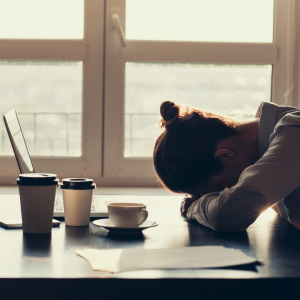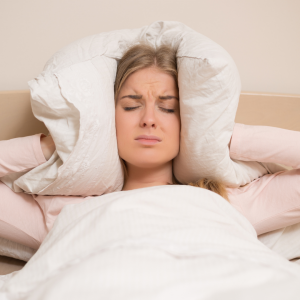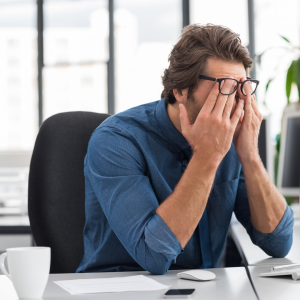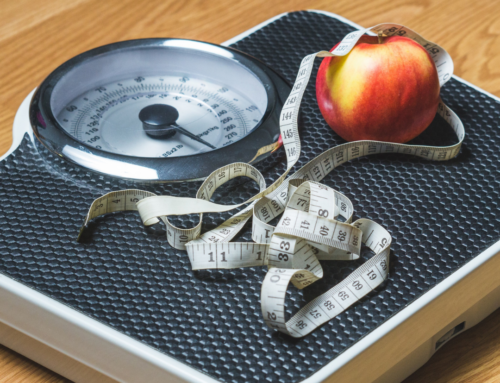Less stress, more sleep: Your prescription for a healthy new year!

For most Americans, stress, insomnia and mental health issues have never been as troubling as they are today. After all, we’re in the midst of a pandemic, recession and political unrest—all at the same time. The good news is you can get a handle on this troubling trifecta and live a calmer, healthier life. Let’s take a look at the stress-sleep connection and a few, simple lifestyle changes that could make a huge difference for you.
What came first, the chicken … umm … stress or insomnia? What about anxiety?
It actually works both ways. Anyone who has experienced stress (that’s most of us) knows it affects sleep and mood. We’ve all been there, lying in bed at night, worrying or stressing out about work, money, health problems, family, and in our current world, COVID-19, recession and political unrest. How does sleep reduce stress? It allows the body the time it needs to recuperate and re-energize. Conversely, insomnia—a condition where you have difficulty falling asleep, staying asleep or both—can elevate stress levels and anxiety because you miss out on the restorative rest your body needs to function and heal properly. Numerous studies, including this one, support the link between stress and insomnia. Research also shows that stress exacerbates anxiety. According to the Anxiety and Depression Association of America, “Studies also show that people with chronic insomnia are at high risk of developing an anxiety disorder.”
How does the body react to stress?
When we experience stressful situations (a bear is running toward you) or thought (“I just missed my flight!”), the body’s fight or flight response—which is rooted in the central nervous system (CNS)—kicks in.
When the CNS activates the fight or flight response, the hypothalamus gland in the brain sends a message to the adrenal glands to release the stress hormones adrenaline and cortisol.
The release of adrenaline and cortisol stress hormones elevates blood pressure, which forces blood into the muscles, heart and organs to give the body strength it needs to fight off the threat at hand. Stress also triggers the immune system, which is terrific in the short-term, should we need heal from a wound or battle an infection. Once the threat subsides, systems in the body should return to normal. However, when stress turns into chronic stress—or insomnia turns into chronic insomnia, which exacerbates stress—that’s when serious health problems can arise.
Health problems associated with stress and sleep problems
Weakened immune system, mood disorders, cardiovascular disease, type 2 diabetes and obesity-
Research suggests that chronic stress may compromise the immune system, particularly in people who are older or due to certain disease states. When you have a compromised immune system you’re more susceptible to disease, and if you do get sick, it may take longer to heal. As previously noted, stress contributes to anxiety and anxiety disorders. It can also play a role in other mood disorders, including depression and irritability, as well as headaches, and of course, insomnia.
In general, most people need seven to nine hours of restful sleep per night for optimum health, yet more than one in three Americans say they don’t get enough sleep. When it comes to duration of sleep problems, at least 5% to 10% people suffer from chronic insomnia, while it is estimated that 30% to 50% of the population suffer the effects of short-term sleep issues.
According to the CDC, people who don’t get enough sleep (which means they may also suffer from anxiety and other mood disorders) may be at higher risk for asthma, type 2 diabetes, obesity, depression and heart disease. Since blood pressure increases during waking hours, insomnia results in longer periods of higher blood pressure, day after day, increasing the risk for heart attack and stroke.
How to reduce stress and sleep better to improve your health
No. 1: Eat this, not that
When it comes to insomnia, changing up what we eat and drink and when, can really help improve sleep, which in turn, may help mitigate stress and anxiety.
FOOD AND DRINKS TO AVOID BEFORE BED
Foods that upset the stomach, include stimulants or prevent the body from winding down can contribute to insomnia. These include:
- PROCESSED FOODS: Insomnia is one of many reasons processed foods are bad for the body. Recent research has even shown that foods high in saturated fat and sugar and low in fiber are associated with lighter, less restorative sleep with more bouts of wakefulness.
- CAFFEINE: Most people know they shouldn’t consume caffeine (a stimulant) prior to bed, in fact it’s best to avoid caffeine 4 to 6 hours before bedtime. Watch out for sneaky sources of caffeine that are easy to miss, like some decaf coffees, certain teas, cocoa products, non-cola beverages and other foods.
- ALCOHOL: Sure, a glass or two of wine before bed may relax you—at first. However, once the relaxing effect of alcohol wears off, the stimulant effect takes over, leading to restless sleep and/or waking you up, so you don’t get the restorative sleep you need.
- SPICY FOODS: Some people experience stomach upset and/or a rise in core body temperature after eating spicy foods—two symptoms that make it difficult to sleep soundly and through the night. If you’re craving spice, hit the hot sauce earlier in the day.
- FOODS HIGH IN PROTEIN: The process of digestion can disrupt sleep. It takes the body a long time to break down high-protein foods like red meat and even chicken, and even longer at night when the digestive system slows down.
- OTHER FOODS THAT CAUSE STOMACH UPSET: Most people know what foods trigger indigestion, gas and bloating, and interfere with a good night’s sleep. Avoid acidic food and beverages like tomato sauce and soft drinks, which may cause acid reflux and artificial sweeteners, which may cause bloating and gas.
FOOD AND DRINKS THAT MAY PROMOTE SLEEP
Foods that contain certain antioxidants (melatonin, apigenin, vitamin C, vitamin D), amino acids (tryptophan, GABA), omega 3 fatty acids, minerals (calcium, magnesium, potassium) and sleep hormones (melatonin, serotonin) may help promote a good night’s sleep. These include:
- Almonds (magnesium, melatonin)
- Walnuts (melatonin, omega 3s)
- Chamomile tea (apigenin)
- Passionflower tea (apigenin, GABA)
- Dairy products such as milk, cottage cheese, unsweetened yogurt (calcium, tryptophan)
- Bananas (tryptophan, potassium)
- Tart cherry juice (melatonin)
- Kiwi fruit (vitamin C, serotonin)
- Oatmeal (melatonin)
- Turkey (tryptophan)
- Fatty fish like salmon, mackerel, tuna, sardines and trout (omega 3s)
Learn how melatonin helps supports sleep and provides other health benefits in this recent post.
No. 2: Being active

Numerous studies, have shown that people who exercise regularly often get a better night’s sleep than those who don’t. This includes one study on middle-aged and older adults who experienced improved sleep after participating in a moderate aerobic and high-intensity resistance training.
That’s because aerobic activity triggers the body to release endorphins—chemicals that keep some people awake. Just be sure to exercise a couple of hours prior to bedtime, so your body has time to process those endorphins and the brain has time to wind down. It’s also helpful to pick activities you enjoy, so you’ll be more inclined to keep moving regularly. Whether you enjoy running, walking, dancing, swimming, yoga or tennis—just keep moving.
No. 3: Relaxation techniques and spirituality
If you feel stressed out regularly and have trouble managing stress, taking steps to better cope with and process that stress is essential for mental and physical health. Learning certain relaxation techniques can really help! People dealing with chronic stress, anxiety or depression may also benefit from meeting with a therapist to find an approach that best meets their needs, like mindfulness therapy.
Prefer to DIY? Mindfulness meditation, deep-breathing techniques, yoga and tai chi are practices that help you focus on living in the present, instead of ruminating and worrying about things from your past or fears about the future. Research supports the mental and physical benefits of mindfulness and the association between yoga and improved sleep. Want to give mediation or yoga a try? There are plenty of videos on YouTube!
Many people also benefit from being spiritually active. For you, that could mean going to church, participating in a prayer group, mediating, doing daily devotionals, going on a nature walk or taking part in other spiritual activities. Tap into what works for you.
No. 4: Nutritional supplements
If you’re concerned about stress, anxiety or insomnia, ask your healthcare practitioner if nutritional supplements could benefit you. Some of our patients respond really well to melatonin supplements, because it helps promote a state of quiet wakefulness that helps us fall asleep. Since we produce less melatonin as we age, this powerful antioxidant and sleep hormone often does the trick.
Another supplement EVEXIAS recommends is FarmaKeio Sleep. This proprietary supplement formula includes a combination of ingredients (phenibut, magnolia seed extract, valerian root, 5-Hydroxytryptophan (oxitriptan) and melatonin are designed to help minimize anxiety, promote feelings of calm and relaxation, as well as induce sleep.
Don’t let stress, anxiety and insomnia ruin your life—we can help!
Mental health issues and insomnia can take a serious toll on the body, so it’s a good idea to speak with a healthcare practitioner about your concerns. He or she can perform a physical exam and lab tests to rule out any underlying health conditions and discuss treatment options with you.
To schedule an appointment with a practitioner at our Rockwall or Southlake clinics, contact us today!
Subscribe Today!
Be the first to get latest updates and
exclusive content straight to your email inbox.
We do not spam. You can unsubscribe anytime.






